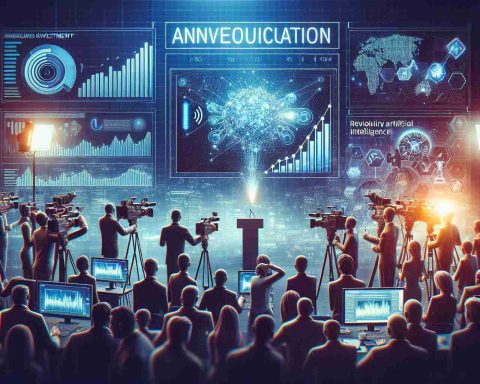Artificial Intelligence (AI) technologies are revolutionizing educational processes worldwide. Educators are leveraging AI to streamline routine tasks, allowing them to focus more on intellectual challenges rather than administrative duties. This shift has been recognized by both educators and students for enhancing the overall educational experience.
While AI tools offer significant benefits, concerns have been raised regarding the quality and accuracy of generated content. Inadequacies in AI algorithms may result in misinformation, underscoring the importance of human oversight and verification in educational settings.
Furthermore, students are increasingly turning to AI for academic support, prompting discussions on ethical usage and the prevention of academic dishonesty. It is crucial for educational institutions to educate students on responsible AI utilization and transparently acknowledge AI involvement in academic work.
Looking ahead, addressing the ethical and legal implications of AI in education is paramount. Developing clear guidelines and standards for AI implementation in academic settings will ensure the ethical and effective use of AI technologies, guiding educators and students in navigating this evolving landscape.
Exploring the Depth of Artificial Intelligence in Modern Education
Artificial Intelligence (AI) continues to make profound strides in reshaping the landscape of education. Beyond the already known benefits and challenges associated with AI integration in modern education, there are additional aspects that are essential to consider. This article delves into some critical questions and nuances surrounding the impact of AI on the educational sector.
What are the key ethical considerations related to AI in education?
One of the key ethical considerations revolves around data privacy and security. As AI systems collect vast amounts of student data for personalized learning experiences, ensuring the protection and proper use of this data is crucial. Additionally, issues of algorithmic bias and fairness in AI-powered assessments must be addressed to prevent discrimination and promote equity in education.
How can AI enhance accessibility and inclusivity in education?
AI technology has the potential to significantly improve accessibility for students with disabilities. From speech-to-text tools for hearing-impaired students to adaptive learning platforms for those with diverse learning needs, AI can cater to a wide range of learners, promoting inclusivity in educational settings.
What are the challenges of integrating AI in curriculum development?
While AI can streamline content creation and delivery, it also poses challenges in maintaining curriculum relevance and quality. Educators must strike a balance between leveraging AI for efficiency and preserving the human touch in designing engaging and comprehensive learning experiences for students.
Advantages of AI in education:
– Personalized learning experiences tailored to individual student needs
– Automation of administrative tasks, allowing educators to focus on teaching and mentorship
– Enhanced data analysis for tracking student progress and identifying areas for improvement
– Accessibility improvements for diverse learners through adaptive technologies
Disadvantages of AI in education:
– Risk of overreliance on AI leading to reduced critical thinking and problem-solving skills
– Potential job displacement for educators in roles that can be automated by AI
– High implementation costs and maintenance requirements for AI systems
– Ethical considerations related to data privacy, algorithmic bias, and transparency
When navigating the complex interplay between AI and education, it is essential for stakeholders to address these questions and challenges proactively. By fostering awareness, promoting responsible AI usage, and prioritizing ethical guidelines, the educational sector can harness the transformative potential of AI technology while mitigating associated risks.
For further insights on the intersection of AI and education, visit Edutopia.

















